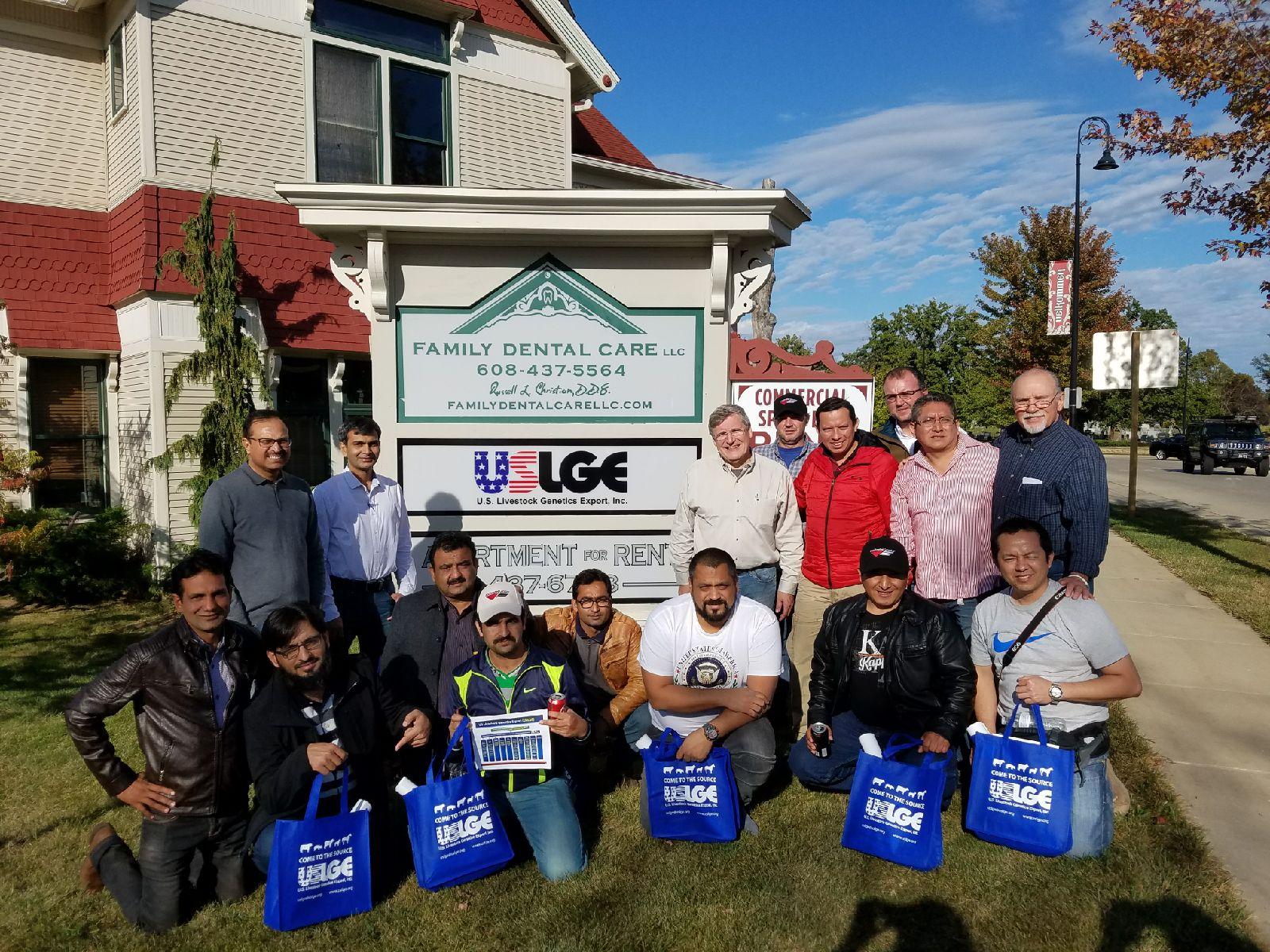
Pakistan: Modernizing the Local Dairy Industry

Dairy products are staple foods in Pakistan, and its manufacturing supports the livelihoods of millions of farmers in the country. The USDA Cochran Program is partnering with Pakistani dairy leaders from private companies and the Pakistan University of Veterinary and Animal Sciences (UVAS) to lead the country’s efforts to modernize their industry and increase production and incomes for their growing population. This October, seven Pakistani Cochran fellows visited the United States to learn how U.S. dairy practices and technologies can be applied to Pakistan’s industry.
Dr. Hifz-Ul-Rahman of UVAS explained that the University’s dairy extension program is growing, and is centered on American technologies. Dr. Rahman reported that, “In 2016, we imported 73 heifers from Florida. We are using this herd to model best practices using U.S. genetics for the Pakistani industry.”
Dr. Rahman is optimistic and noted that UVAS is working with 80 dairy farms on a regular basis. These farms all use imported American genetics. While the farmers all agree that imported U.S. cattle are superior, optimizing their productivity is a long-term undertaking that involves experimentation, investment and continued education with American businesses and genetics exporters. Additionally, the program has used their new herd to strengthen the UVAS animal science program with internships and hands-on training opportunities for its students.
Cochran Fellows from the private sector report that participating in the dairy training provides invaluable exposure to new ideas and technologies that they will take back to Pakistan. Dr. Mohamed Irfan of Pakistan’s Sapphire Dairy in Lahore explained that as the nutrition manager for a 4000-head herd, learning from American businesses is crucial in his efforts to keep his dairy competitive and to optimize the genetic potential of his imported cattle. He noted that during his visit, the U.S. experience convinced him that American cattle set the standard that his business should strive for, and that it would be difficult to justify importing genetics from competitors in Holland and Australia. In addition, he noted that his visit to the United States was a good chance to update equipment for his farm and that he is a planning a purchase of U.S. made feed mixers.

